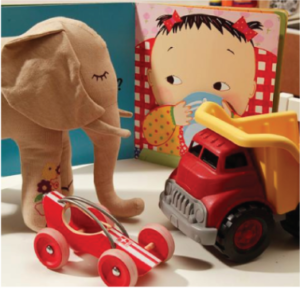KinderHeart Petite Program
Our infant program is committed to promoting quality Montessori infant care for children from 6 months to eighteen months, based on these key Montessori concepts:
The aim of Montessori infant programs is to foster the development of basic trust and to assist in the normal development of the personality.
Basic trust develops in an environment where people respond appropriately to the infant’s communication of needs to be loved, respected, and accepted.
Infants learn through their senses. They learn by watching and moving freely. Freedom to move is essential to the development of the infant’s potential.
The infant is considered as a whole person and is affected by the quality of holding and feeding, as well as the quality of physical care.
Learning, which leads to independence, occurs when infants participate in their daily routines of care.
Infants must be spoken to in the language with which they will communicate.
The Montessori- ECE infant specialist is educated in these areas:
• Self-knowledge as preparation
• Human growth and development
• Observational skills to assist the development of each child
• Preparing responsive environments to meet the infant’s developmental needs
• Respecting daily routines and incorporating them into the infant’s curriculum
• Both verbal and non-verbal communication skills
• Respecting the infant as a person
• Respecting the environment as a resource for the infant’s development
• Taking responsibility to assist and protect the infant’s development
• Nurturing infants
Cognitive Development
Montessori materials are based on sensorial exploration. Thus, a child learns by doing and by manipulating objects prepared in his environment. The materials are also designed to be self-correcting, for the purpose of fostering self-confidence and the love of learning. As each child is different, the learning process is altered slightly for each child.
Fine Motor Development
KinderHeart Montessori’s Toddler program assists in the development and refinement of fine motor skills. At this age, there is a direct link from hand to brain, and cognitive skills are enhanced by the work of the hands.
The following areas of fine motor development have been programmed for thru the activities offered and the materials available within the classroom.
Your toddler will learn:
• Hand-Eye co-ordination
• Hands in opposition
• Two hands working together
• Tactile and visual stimulus
• Figure-ground perception
• Arms and hands working together
• The perfection of movement and exactness
Toddler Program.
KinderHeart’ s Montessori Toddler Program is based on the Montessori principles of self-directed independent learning, which is often difficult to program for. Each child’s needs and abilities are unique, and it is our mandate to program for each individual child as they develop and progress throughout the year.
Gross Motor Development.
Toddler Program.
Outdoor time is scheduled twice a day giving the Toddler plenty of opportunities to use their large muscles and expel energy. Strength, agility, balance, and coordination are practiced on a daily basis, through the use of the outdoor equipment and daily walks.
Some other seasonal activities include:
Nature walks & raking leaves

Other opportunities for gross motor development occur during indoor play times:
• Music and movement
• Balls, bean bags, and streamers
• Tunnel and tent
• Indoor climber/slide
Language
Language development is extremely important in the Montessori Toddler classroom. The environment is filled with rich language opportunities throughout the day. The Toddler will learn to associate language with a real object, and then reinforce what was learned by the use of an abstraction. As well, the children are exposed to rhythmic and poetic language during story time and music circle.

The following resources and activities will be explored daily:
• Music and rhythmic language
• Books
• Language cards
• Practical life exercises
• Sensorial exercises
They are:
• Preparing food
• Setting a table
• Washing dishes
• Caring for their environment
• Caring for themselves
Toddlers are taught respect for their environment, their classmates, their teachers and themselves on an ongoing basis. Further opportunity for growth occurs during music time, story time, and both outdoor and indoor play times. As well, snacks and lunch are offered in the classroom which makes for a wonderful social time and the opportunity to enhance their social graces.
Montessori Practical Life skills build a child’s self-confidence and self-worth through purposeful daily routines.
